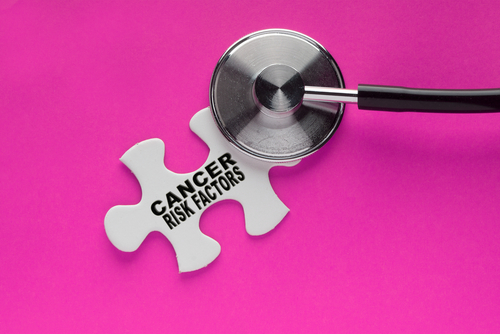Myriad Genetics has developed a new test, called riskScore, that accurately predicts the five-year and lifetime risk of breast cancer in women who tested negative for hereditary mutations in breast cancer risk genes with the myRisk Hereditary Cancer test.
Results show that nearly four out of 10 patients who tested negative for hereditary breast cancer mutations have more than a 20% chance of developing breast cancer in their lifetime.
The findings were recently presented at the 2017 San Antonio Breast Cancer Symposium (SABCS).
The poster, titled “Development and Validation of a Combined Residual Risk Score to Predict Breast Cancer Risk in Unaffected Women Negative for Mutations on a Multi-Gene Hereditary Cancer Panel,” was presented by Elisha Hughes, PhD, senior manager of research biostatistics at Myriad Genetics.
Women with a strong family history of breast cancer are often referred for genetic testing to examine whether they inherited breast cancer mutations that increase disease risk. But while there are several well-known breast cancer risk genes, fewer than 10% of women with a family history of breast cancer test positive for these mutations.
RiskScore combines data from clinical risk factors, genetic markers, and a patient’s family and personal history to predict individualized breast cancer risk.
“Myriad Genetics is the first to bring to market a comprehensive approach to lifetime breast cancer risk assessment that includes 28 genes, family history evaluation, and well-validated SNPs through riskScore,” Johnathan Lancaster, MD, PhD, chief medical officer at Myriad Genetics, said in a press release. SNPs, or single nucleotide polymorphisms, refer to mutations in which a single DNA letter is switched.
“This comprehensive approach delivers the most precise tool in the industry to help physicians assess a patient’s breast cancer risk and empower choices that may prevent a patient’s breast cancer from ever happening,” Lancaster added.
The tool was designed to predict the five-year and lifetime risk of breast cancer in women of European descent. To build the models, researchers included data from 990 women with breast cancer and 627 healthy controls.
Compared to family and personal history alone, riskScore was better at predicting if a patient would develop breast cancer within five years or during their lifetime. This demonstrates that each patient’s SNPs are important predictors of breast cancer risk.
“We believe our myRisk Hereditary Cancer test, now enhanced with riskScore, provides the most comprehensive breast cancer risk assessment available today,” said Jerry Lanchbury, PhD, chief scientific officer at Myriad Genetics.
Using data from a real-world group of 6,479 women who tested negative for mutations in 11 genes previously associated with hereditary breast cancer, researchers further validated the tool’s effectiveness. In this group, the lifetime risk of unaffected patients varied from 0.88% to 66.4%. The test also showed that 38.2% of patients had more than a 20% chance of developing the disease in their lifetime. And 7.4% had more than a 35% chance of developing breast cancer, which is three times higher than the general population.
“Patients who are above 20 percent lifetime risk are candidates for additional screening based on U.S. Preventive Services Task Force recommendations and those above 35 percent may be candidates for more aggressive medical interventions,” Lancaster said. “Importantly, these data show that riskScore identifies a larger number of high-risk patients than either BRCA1 or BRCA2 testing and represents the next major epoch in hereditary cancer risk assessment and patient care.”

